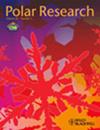水族馆在白鲸研究和保护中的作用
IF 1.3
4区 地球科学
Q3 ECOLOGY
引用次数: 2
摘要
在专业护理下照顾和维护白鲸(Delphinapterus leucas)的水族馆有机会通过研究,动物护理和饲养方面的专业知识,以及参与和教育公众对物种健康和种群可持续性的威胁,为野生白鲸的保护做出贡献。在水族馆的环境中,白鲸可以在受控的条件下进行研究,在研究野生白鲸时,已知的变量通常难以辨别。关于营养、健康状况和环境参数的信息可以很容易地在受控环境中获得。生物样本是从自愿参与信息性实验范式的受过专业训练的鲸鱼身上收集的。在水族馆的研究,寻求有助于恢复和管理濒临灭绝的白鲸种群,如那些在库克湾。神秘水族馆的努力是作为一个案例研究。主要研究重点涉及库克湾白鲸恢复计划中的行动项目,包括:(1)了解白鲸的免疫系统、微生物群落、病原体和疾病;(2)开发评估野生鲸的生殖状况、身体状况和健康的非侵入性方法;(3)调查潜水生理学和改变潜水模式对健康的影响;(4)了解繁殖,这是野生种群恢复和可持续发展的关键;(5)开发和测试跟踪和监测鲸鱼及其栖息地利用的新技术;(6)了解噪音如何影响白鲸的听觉、行为和生理。动物处理、行为和营养方面的专业知识有助于救援、康复和捕获释放工作。此外,所有年龄段的“学生”都有机会参与、接受教育并为白鲸保护做出贡献。本文章由计算机程序翻译,如有差异,请以英文原文为准。
The role of aquaria in beluga research and conservation
Aquaria that care for and maintain belugas (Delphinapterus leucas) under professional care have the opportunity to contribute to the conservation of wild belugas through research, expertise in animal care and husbandry, and engaging and educating the public about threats to the species’ health and population sustainability. In an aquarium setting, belugas can be studied under controlled conditions, with known variables that are often difficult to discern when studying wild belugas. Information on nutrition, health status and environmental parameters can be easily obtained in a controlled setting. Biological samples are collected from professionally trained whales that voluntarily participate in informative experimental paradigms. Research studies in aquaria seek to contribute to the recovery and management of endangered beluga populations, such as those in Cook Inlet. Mystic Aquarium’s efforts are presented as a case study. Key research priorities address action items in the Cook Inlet Beluga Recovery Plan and include: (1) understanding the beluga immune system, microbial communities, pathogens and disease; (2) development of non-invasive methods for assessing reproductive status, body condition and health in wild whales; (3) investigation of diving physiology and the impact of altered dive patterns on health; (4) understanding reproduction, a key to recovery and sustainability of wild populations; (5) development and testing of new technologies for tracking and monitoring whales and habitat use; and (6) understanding how noise affects beluga hearing, behaviour and physiology. Expertise in animal handling, behaviour and nutrition contribute to rescue, rehabilitation and capture release efforts. Moreover, ‘students’ of all ages have the opportunity to be engaged, educated and contribute to beluga conservation.
求助全文
通过发布文献求助,成功后即可免费获取论文全文。
去求助
来源期刊

Polar Research
地学-地球科学综合
CiteScore
3.20
自引率
5.30%
发文量
22
审稿时长
>12 weeks
期刊介绍:
Since 1982, Polar Research has been the international, peer-reviewed journal of the Norwegian Polar Institute, Norway''s central institution for research, environmental monitoring and mapping of the polar regions. Aiming to promote the exchange of scientific knowledge about the Arctic and Antarctic across disciplinary boundaries, Polar Research serves an international community of researchers and managers. As an open-access journal, Polar Research makes its contents freely available to the general public.
Original primary research papers comprise the mainstay of Polar Research. Review articles, brief research notes, letters to the editor and book reviews are also included. Special issues are published from time to time.
The scope of Polar Research encompasses research in all scientific disciplines relevant to the polar regions. These include, but are not limited to, the subfields of biology, ecology, geology, oceanography, glaciology and atmospheric science. Submissions from the social sciences and those focusing on polar management and policy issues are welcome. Contributions about Antarctica are particularly encouraged.
 求助内容:
求助内容: 应助结果提醒方式:
应助结果提醒方式:


